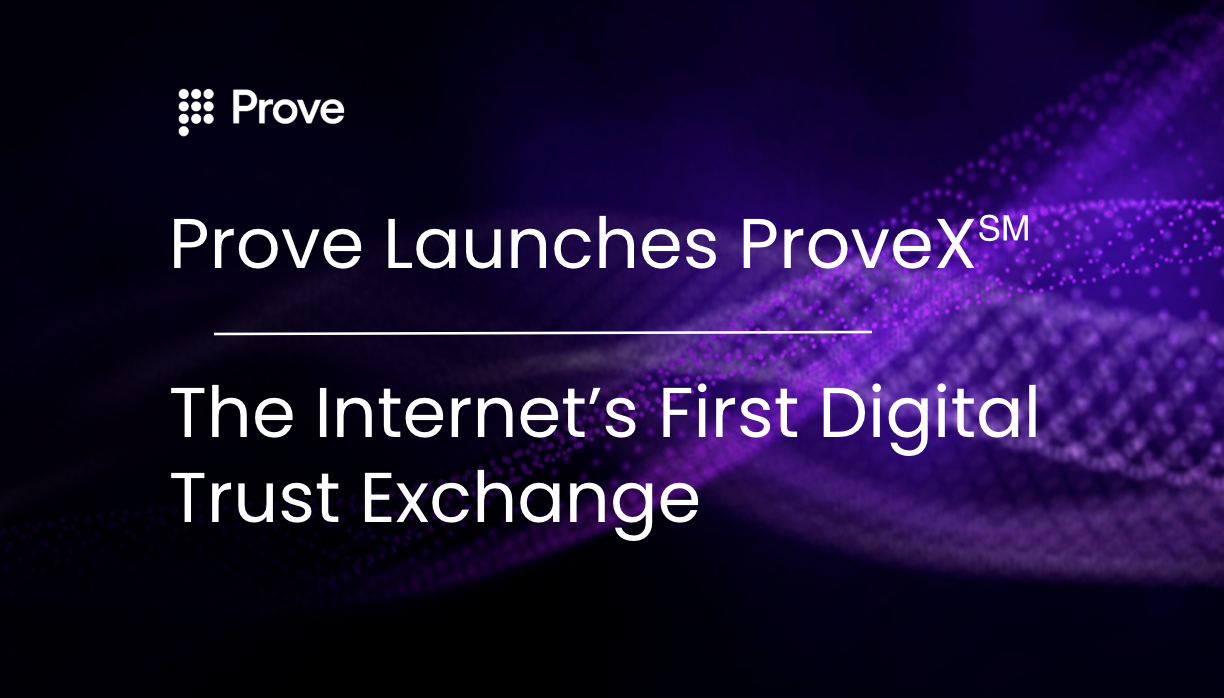Prove Blog
Discover industry insights, deep dives, product updates, and more.
 Read our external blog article: Prove Launches ProveX℠, the Internet’s First Digital Trust Exchange
Read our external blog article: Prove Launches ProveX℠, the Internet’s First Digital Trust Exchange Read our blog article: Prove Launches ProveX℠, the Internet’s First Digital Trust Exchange
Read our blog article: Prove Launches ProveX℠, the Internet’s First Digital Trust ExchangeCompany News
Prove Launches ProveX℠, the Internet’s First Digital Trust Exchange
Prove launches ProveX, ProveX, a new digital trust exchange that enables enterprises to instantly access verified data and credentials from partners, while preserving trust through every interaction
Thank you! Your submission has been received!
Oops! Something went wrong while submitting the form.












